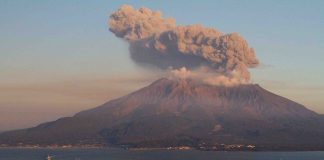Japan’s growing willingness to contemplate military action in the event of a Chinese assault on Taiwan is not merely a diplomatic signal.
It is a long-overdue recognition of strategic reality. For too long, the illusion of distance — political, legal, and geographic — has allowed Tokyo to avoid confronting the uncomfortable truth that its own security depends directly on Taiwan’s. Now, with Beijing routinely pressing its claims in the East China Sea and sharpening its rhetoric across the region, Tokyo’s clarity should be welcomed, not wrung hands over.
China’s latest decision to send coast guard ships through the waters surrounding the Senkaku Islands illustrates precisely why. These incursions are not symbolic lapses in judgment or mere maritime theatre. They are part of a deliberate campaign of pressure, conducted by a state that increasingly uses quasi-civil agencies as tools of coercion. The Senkakus, administered by Japan, have become the testing ground for Beijing’s theory of incremental advantage — the belief that it can shift facts on the ground without triggering a decisive response.
In this context, Japan’s signal that it could respond militarily to a Chinese attack on Taiwan is not provocative. It is prudent. It reflects an understanding that the region’s security cannot be maintained by the old posture of strategic timidity, nor by the polite fictions that once insulated Japan from the hard edge of regional geopolitics. China’s behaviour has made those fictions untenable.
Taiwan’s security is inseparable from Japan’s. A hostile power dominating Taiwan would control critical sea lanes, project military force deep into the Western Pacific, and directly threaten the Nansei island chain, including Okinawa. The idea that Japan could somehow absorb such a strategic shock — or that it could retreat into legalistic neutrality while the region’s balance of power collapses — is an illusion. Japan has every right, indeed an obligation, to make clear that it will not stand idle should China attempt to redraw the map by force.
Critics, inevitably, will accuse Tokyo of raising tensions. But this reverses cause and effect. The destabilising actor in East Asia is not Japan — a democratic nation with a pacifist constitution and a decades-long record of restraint — but China, whose behaviour has grown steadily more assertive. Beijing is the party escalating by sending coast guard formations into contested waters, by conducting record numbers of military flights near Taiwan, and by seeking to normalise a posture that treats intimidation as diplomacy.
Against such behaviour, deterrence is not optional. It is the minimum requirement for preserving peace. Japan’s willingness to contemplate military action is not a march to war but a message to Beijing that aggression will not be cost-free. Far from inflaming tensions, such clarity reduces the likelihood of conflict. Ambiguity invites miscalculation. Resolve prevents it.
It is also worth noting that Japan is not acting alone. Its position aligns with the strategic concerns of its democratic partners, particularly the United States, which has long maintained that peace in the Taiwan Strait is a matter of vital interest. A Japan unprepared or unwilling to respond to a crisis in Taiwan would not only undermine its alliance with Washington but would also signal to Beijing that the regional order is brittle and easily coerced.
Nor should one underestimate the domestic implications for Japan. The nation has spent decades relying on the notion that economic interdependence with China would naturally temper Beijing’s ambitions. That belief has been steadily eroded by repeated incursions around the Senkaku Islands, coercive trade behaviour, cyber intrusions, and the broader militarisation of Chinese statecraft. Japan’s public, once hesitant even to discuss constitutional reform on defence matters, now understands that pacifism without credible deterrence is a hollow shield.
Japan’s shift also reflects a deeper moral clarity. Taiwan is a vibrant democracy, culturally close to Japan and economically indispensable to the world. Abandoning Taiwan in the face of Chinese aggression would not only jeopardise Japan’s security; it would constitute a moral abdication inconsistent with everything Japan has sought to embody since 1945. Standing with Taiwan — and preparing to defend it if necessary — is a stance rooted in principle, not merely strategy.
China’s assertiveness will not diminish because regional democracies whisper their objections politely. It will diminish only when those democracies demonstrate that coercion will be met with unity, strength, and consequences. Japan’s stance is a sign that one of Asia’s most influential powers understands this. And it is high time others followed suit.
If Beijing believed Tokyo would forever shrink from hard choices, it miscalculated. Japan’s message is now unmistakable: it will not allow the region’s future to be dictated by force, nor will it permit its own security to be compromised by the fall of a neighbouring democracy. Some will call this hawkish. In truth, it is the clearest path to peace.
In standing firm alongside Taiwan, Japan is not stoking conflict. It is helping to prevent one.
Main Image: By 防衛省・自衛隊ホームページ, CC BY 4.0, https://commons.wikimedia.org/w/index.php?curid=86508103



